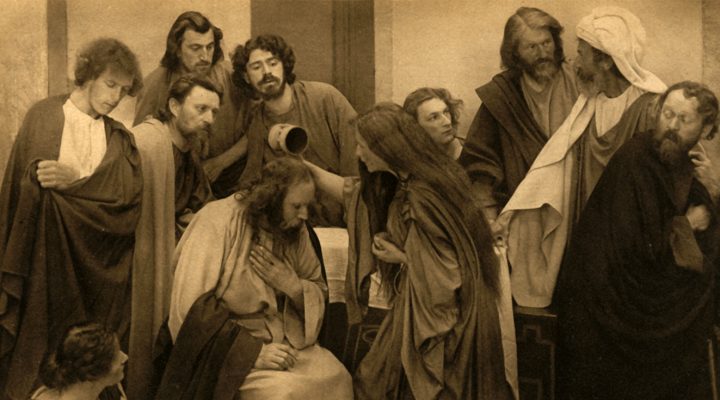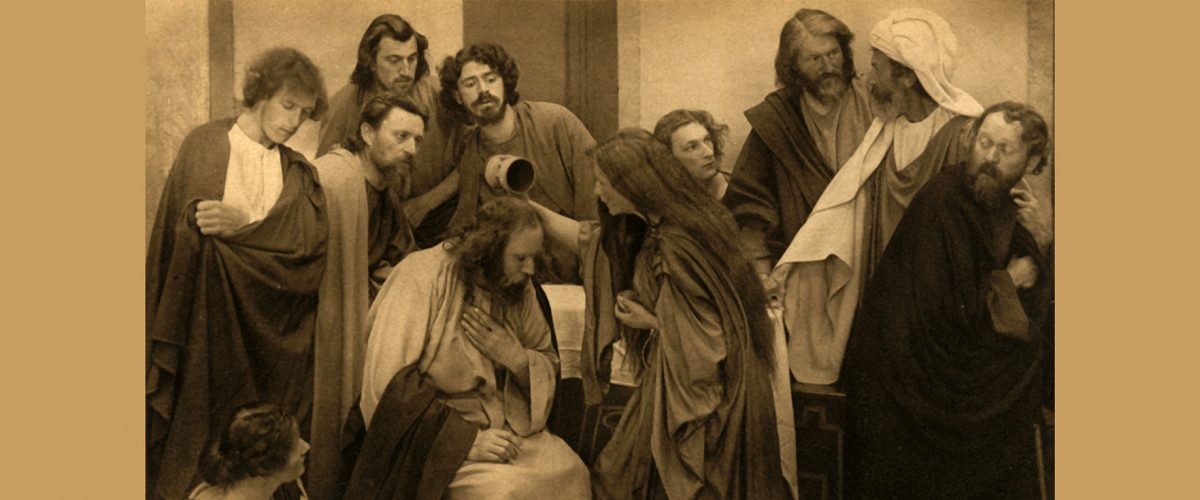This week, certain disciples of Jesus Christ called their meeting to order and promptly forgot themselves — bad news!
At this summer’s annual meeting of the Southern Baptist Convention, messengers voted to forget their fundamental Baptist value of congregational autonomy.
They voted to continue their relentless attack on God’s good, perfect and equal image, indwelling within women throughout creation.

Andrea Johnson
And they voted to extinguish the prophetic flame the Holy Spirit poured out unto all flesh at the birth of the very first church.
These certain disciples of Christ do not speak for all disciples of Christ, and they certainly do not speak for all Baptists, for there are many Baptist affiliations that affirm unto all — especially women — God’s calling to serve God’s people in pastoral ministry.
These certain disciples want us to forget God’s equal calling, gifting and valuing of women who are serving God’s people, affirmed in their pastoral ministry, in churches throughout the world.
“These certain disciples of Christ do not speak for all disciples of Christ.”
But the Gospel of Matthew calls all disciples of Christ to remember differently.
If I asked you to recall the Scripture text in Matthew 26:6-13, could you remember it?
Could you recall that this text features Jesus’ own voice commending the good news of a woman’s ministerial actions to be proclaimed and remembered throughout the whole world?
In case you’ve forgotten, allow me to help you remember:
Matthew 26:6-13 is situated at the very beginning of Matthew’s passion narrative, which is the last section of Matthew’s overall gospel narrative. At this point in the Gospel, Jesus has just issued his fourth and final prediction, or prophecy, of his own death to the disciples, and the plans for his arrest by the Roman-appointed religious leaders have been finalized.
Stories of Jesus’ anointing are recorded within all four Gospels, the parallel texts being Mark 14:3-9, Luke 7:36-50 and John 12:1-8. Each of these accounts display contrast, to varying degrees, in comparison with Matthew’s account.
Matthew’s Gospel tells us the time to prepare for Passover is about to begin when, while gathered at the house of Simon, an unnamed woman took action and anointed Jesus while he was sitting at a table, presumably for a meal, with his disciples.
“The woman is met with resistance from the gathering of Jesus followers.”
The woman is met with resistance from the gathering of Jesus followers who chide her, insisting she should have made wiser choices with her money and her action, honoring the poor instead of honoring Jesus Christ, the Redeemer of the World.
However, Jesus’ affirmation is not then given to the disciples who advocated for worldly recognition for their paternalistic mission endeavor. Jesus’ affirmation and advocacy is showered upon the woman whose ministry proclaimed the divinity of Christ and served as truthful recognition of the reality of Jesus’ final prophecy.
The anointing woman in this text affirms, values and elevates Jesus’s ministry with her anointing action. Her valuable alabaster jar of ointment and her embodied choice to pour it onto Jesus’s head elevated his stature symbolically and profoundly, recalling to her gathered Hebrew audience the anointing of kings like David by the Hebrew people’s prophets like Samuel.
In verse 13, Jesus concludes by proclaiming, Amen, as he truly says unto all readers of this text that to remember this woman and her prophetic and ministerial actions — which reveal the coming fulfillment of Jesus’ own prophecy unto his own death and resurrection — is to proclaim good news.
Matthew 26:6-13 calls for witness and proclamation of the truth that the ministry of women was affirmed, anointed and elevated by Christ himself and is to be remembered as good news.
But as is often the case with good news, there’s often some bad news too.
Recall Matthew 26:10, where Jesus asks of his trouble-making disciples regarding their chastisement of the anointing woman going about the work of her ministry: “Why are you making this trouble for the woman? She has done something good for me.”
As it turns out, despite the blessing and proclamation of even Jesus Christ himself, women doing something good through their work of pastoral ministry continues to draw the criticism of certain disciples of Christ.
“Despite the blessing and proclamation of even Jesus Christ himself, women doing something good through their work of pastoral ministry continues to draw the criticism of certain disciples of Christ.”
Despite Christ’s affirmation and advocacy, certain disciples take action to expel and disfellowship churches for ordaining and installing women to pastoral ministry.
Despite Christ’s call to remember and witness, certain disciples take action urging disciples to follow their lead against and contrary to Christ’s biblical example of affirmation of women in pastoral ministry.
And despite Christ’s true blessing, certain disciples take even more dangerous and troublesome action. They compile and make publicly available lists — complete with personal information and Google map locations — of women serving in pastoral ministry, while also proclaiming cishet male limitations upon the lives of LGBTQ people fully created, affirmed and called by their creator into pastoral ministry.
Such actions trouble my mind with questions:
- Do these disciples not remember the ministering good news of the Christ-anointing woman?
- Can they not affirm the good news of women ordained to ministry, proclaiming the truth of Jesus Christ for the people of God?
- Do they not hear the voice of Jesus asking why they are making this trouble for these ministering women?
Perhaps these certain disciples would do well to remember that the Savior whom they follow made a way for the anointing woman’s ministry, witnessed to the goodness of her actions and proclaimed her ministry should be remembered as good news throughout the whole world.
Matthew 26:6-13 is gospel truth that a call to remembrance is an embodiment of action.
Despite the trouble that is encountered from certain disciples, we must affirm, value, elevate, celebrate and make way.
Call the world to remember, as Jesus proclaimed: The ministry of women is good news — Amen.
Andrea Corso Johnson serves in pastoral ministry as the pastor for families at First Baptist Church in Decatur, Ga., and serves in advocacy ministry at the Cooperative Baptist Fellowship as the Suzii Paynter March Advocacy Fellow to Public Education. In 2022, Andrea won the John R. Claypool Excellence in Preaching Award and was selected as a Lancaster Scholar by the Cooperative Baptist Fellowship of Georgia. Andrea studies as a third-year graduate student at Mercer University’s McAfee School of Theology in Atlanta, pursuing the master of divinity degree with a certificate in faith-based social transformation.


